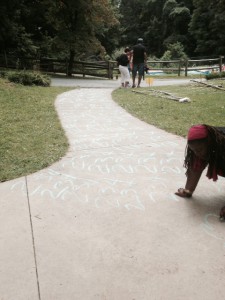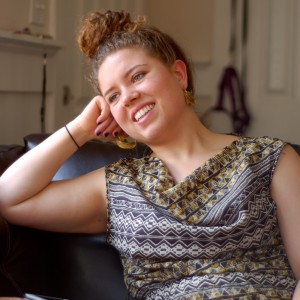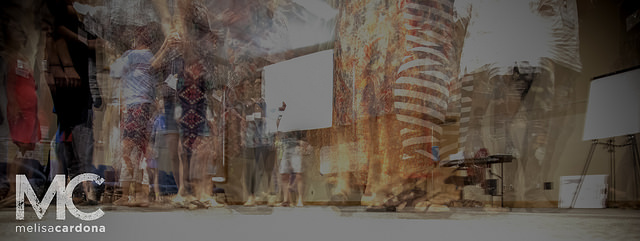Article by Alison Hall Kibbe (New York, NY)
this map creeps over my body
I feel hills roll
and rivers
meander
rushing to carve out space
the highway carries the songs and stories of peoples
etched
into
my side
I feel a favorite coffee shop on my hip
My childhood hideout is in my toes
dark scars marks places I do not want to return.
a valley
carves
its
way
down
my
spine
and borders are like grooves in my shoulders
they graze and kiss each other.
the friction of movement
Last week at Alternate ROOTS we spent time discussing the possibilities of “Rootslandia,” a physical home for Alternate ROOTS. During this session, Nick Slie offered his thoughtful insights, and amid them stated, “I understand the South as a ‘territory of experience.’”
Amidst a fertile conversation about the intersection of Alternate ROOTS’ mission and the complex history and relationship between land and ownership in the the South, this phrase “territory of experience” jumped out at me. It has become a helpful touchstone as I work to create and imagine possibilities in a world shaped by displacement and migration, and my own multi-geographic experience.
After the session I asked Nick about this phrase and he told me he first encountered it through the author John Berger and then kindly sent along the article “Ten Dispatches About Place.”

Pop-up solo performance of twohundredthirtyfourtwohundredthirtyfourtwohundredthirtyfour by Ebony Noelle Golden. August 9, 2014. Photo: Alison Kibbe
Berger’s article is rich — full of things to juice, wrestle, and play with. For now, I’m meditating on the interaction between geographies and bodies. Maps are a rich source of inspiration for me, and much of my recent thought, process, and practice has been about how geographies work on us. It seems that conversation is often about placing people on maps, talking about how humans and politics shape land and the perception of place through cartography. This is very true, illustrated by the fact that many of us, especially in new locations, engage with movement through space by looking at avatars of ourselves as little blue dots moving on top of muted yellow streets on GoogleMaps.
But what if we flip that script? How do maps work on us? How do we carry them on our bodies? Do maps stick, mold and slide down our bodies carving us like glaciers? Or perhaps like rivers, sometimes wearing us down like the trickle of a creek, and at other times the rush of overflowing rapids and floods. How do we take geographies with us? Especially when we cannot stay? And how do the textures of the territories and landscapes we live in shape how we travel?
Leaving ROOTS Week, I have an even stronger sense of how the “territory of experience” that is the South shapes me. How this landscape pushes me off center, rides the lines of my curves, carves my valleys and peaks. And ROOTS Week offered a beautiful glimpse into how the geography of the South has worked on others and what happens when personal and individual geographies and cartographies interact and come together.
As a first-time “ROOTer” it was inspiring to meet, learn, and celebrate with folks who are tapped into their magic and unapologetically letting it flow out in ways that are as diverse, changing, and idiosyncratic as the the landscape of the South. From Piedmont, Appalachia, Bayou, tidewater, low country, urban, rural, and beyond, ROOTS is a chance to come home to the familiar and to cross and bridge borders. Instead of drawing rigid boundaries of the South, ROOTers brilliantly illustrated the multiple truths that shape our multi-textured and layered territories of experience. We get to touch, taste, hear and smell them through the experiences that our fellow ROOTers bring.
In the midst of historic and current violent restricting and limiting bodies and identities, it was particularly powerful to see ROOTers burst out of borders with their juiciness and a commitment to move forward by honoring memory, history, and place. Through song, performance, visual art, healing, movement, service, and conversation, ROOTS Week was a time to intentionally witness, reflect on, and shape our territories of experience, offering a chance to collectively imagine future landscapes and re-member those from our past.
To end I offer two songs that entered my life en route to/from ROOTS Week via the wonderful Rasha Abdulhadi — “Flow Throo” and “Diaspora” by Gabriel Teodros. I’ve been playing them on repeat as I meditate on these questions of place, history, and letting our history and magic flow.
__________
 Alison Hall Kibbe is an artist, educator, arts administrator and community organizer who weaves together performance, ethnography, and community building. She currently lives in NYC and is blessed to collaborate with many creative individuals and organizations.
Alison Hall Kibbe is an artist, educator, arts administrator and community organizer who weaves together performance, ethnography, and community building. She currently lives in NYC and is blessed to collaborate with many creative individuals and organizations.
She was raised in North Carolina and her research and work have taken her through Brazil, the Mississippi Delta, South Africa, and her mother’s home country, Jamaica, exploring questions of art, identity, and social change in the African Diaspora. She has worked in the White House in the Office of the First Lady, Michelle Obama; at the John F. Kennedy Center for the Performing Arts; and with arts consulting firms WolfBrown and Webb Management Services. In 2012, Alison was the winner of the Dance Writing Award, the Benenson Award in the Arts, and the Paul Farmer Award for Justice and Social Responsibility at Duke University, where she graduated with distinction in Cultural Anthropology and Public Policy. She was a 2011 participant in the Urban Bush Women Summer Leadership Institute and attended the American Dance Festival in 2012. You can visit her website at www.alisonkibbe.com.

